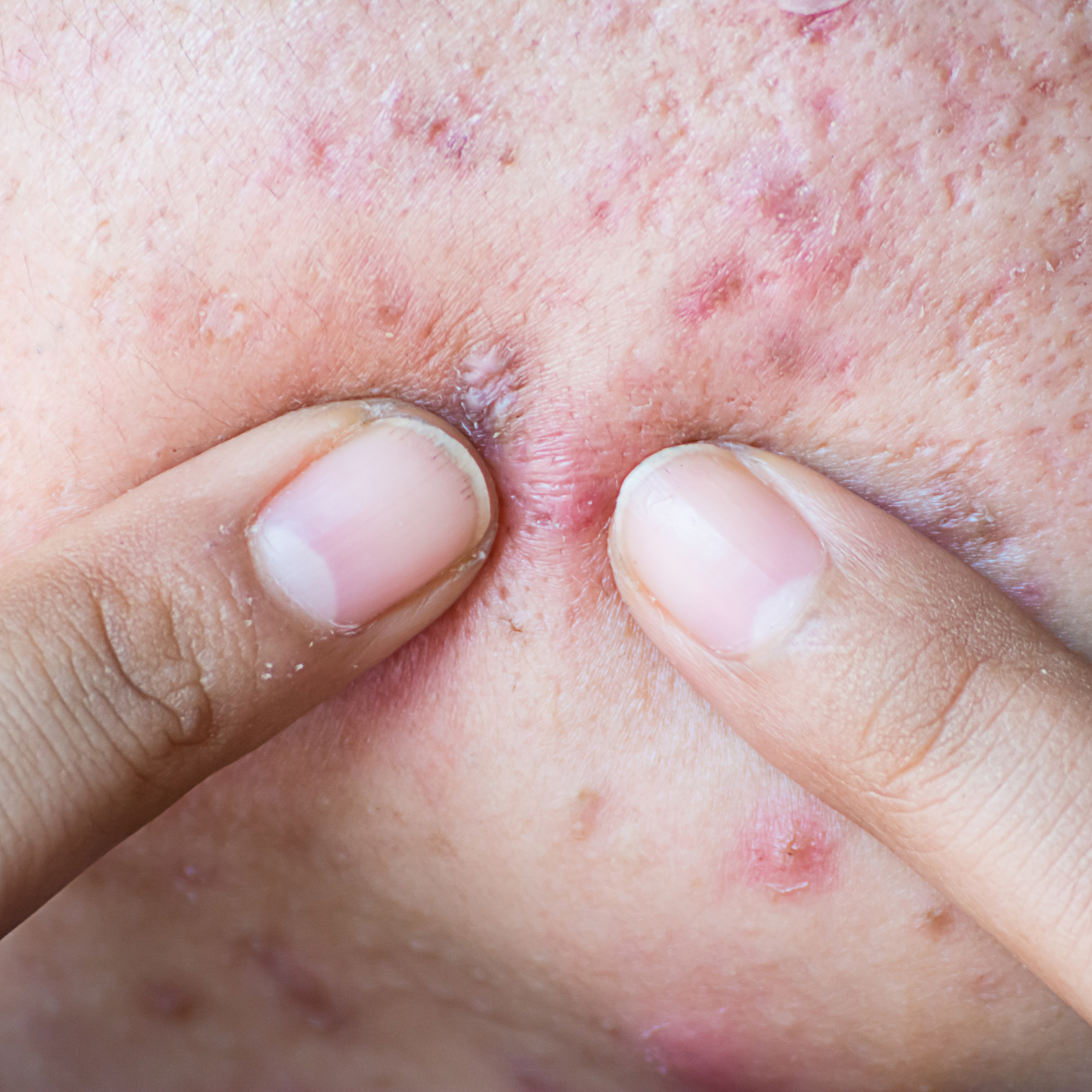 For some people, acne goes beyond the annoying blackheads and ugly whiteheads. For some, the acne becomes a deeper skin problem that causes red, painful bumps that are filled with large amounts of pus. Gross? It certainly doesn’t stop people from trying to pop them. You just want them to go away. It makes sense.
For some people, acne goes beyond the annoying blackheads and ugly whiteheads. For some, the acne becomes a deeper skin problem that causes red, painful bumps that are filled with large amounts of pus. Gross? It certainly doesn’t stop people from trying to pop them. You just want them to go away. It makes sense.
Not so fast. “With cystic acne, popping inflamed pimples can lead to bigger problems,” notes Dr. Miriam Hanson, dermatologist and skin care expert at Sanova Dermatology. By spreading infected oils and material on the skin, getting rid of one can lead to more coming up in their place. Worse yet, picking the skin might only induce more inflammation, serving to create larger sores that can lead to scarring.
That’s why it is so important to treat cystic acne the correct way. There are several treatment options available to patients suffering from cystic acne. Let’s take a look at 4 of the most effective ones.
Isotretinoin
Isotretinoin is usually is known by its more common brand name, Accutane. Accutane has been used for decades to successfully treat cystic acne.
Do not be put off by stories you have heard about Isotretinoin. “Properly administered and monitored by your physician, Accutane and its counterparts can be used safely and effectively treat acne,” Dr. Hanson shares.
Oral Antibiotics
Oral antibiotics can be used with great results. The oral antibiotics used for acne treatment typically include tetracycline, erythromycin, minocycline, and doxycycline. “These can be used in varied strengths depending on the severity of the case,” says Dr. Hanson. Oral antibiotics can lose their effectiveness over time and alternative treatments may need to be explored.
Topical Retinoid Products
Gels, creams, and lotions containing retinoids can be used alone or in conjunction with oral antibiotics in the treatment of cystic acne. Patients using these topicals can experience itchiness and dry, flaking skin which can be managed with moisturizers and a proper skin care regimen.
Oral Contraceptives
The exact cause of cystic acne is unknown but has been definitively linked to hormone levels. For women, starting a course of oral contraceptives (birth control pills) may help to reduce and control outbreaks. The contraceptives help to regulate hormones which in turn reduce the flare-ups of acne.
Acne can be embarrassing enough, cystic acne even more so. The pimples are larger, redder, and can leave scarring when they resolve.
Contact Us
Our physicians have a variety of treatment options available to treat your acne condition. Please contact us to schedule a consultation so we can develop a personalized treatment plan just for you.
